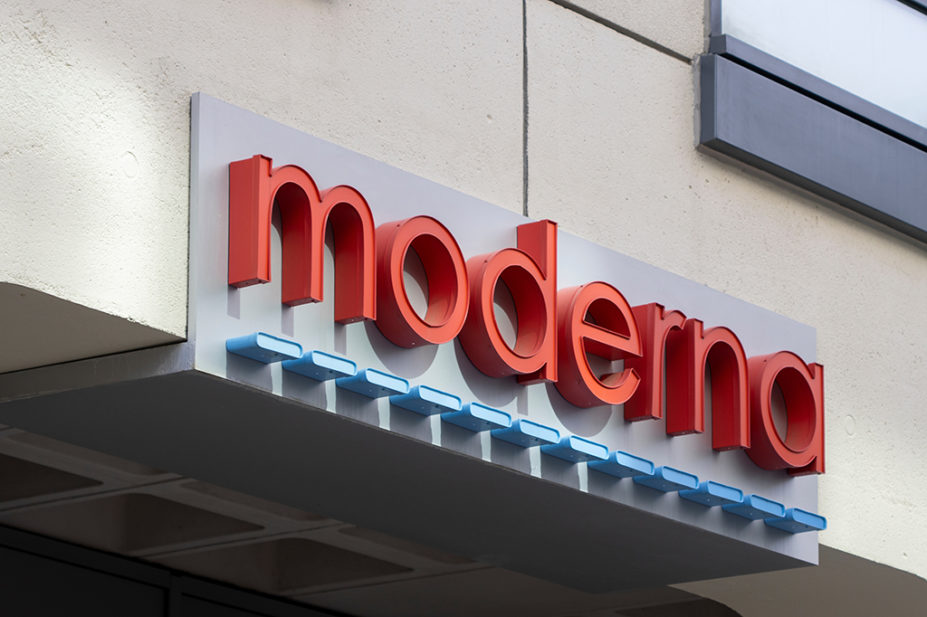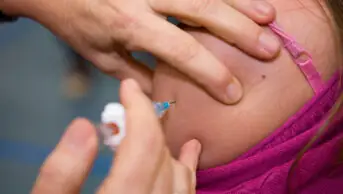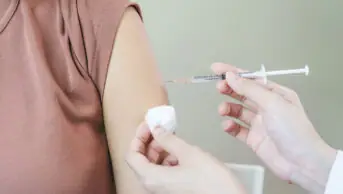
Shutterstock.com
Use of a messenger RNA (mRNA) cancer vaccine in combination with a monoclonal antibody in patients with melanoma resulted in a fall in recurrence or death of the patient by 44%, phase II trial results show.
The data — published by Moderna, which manufactures the vaccine, on 12 December 2022 — showed that the ongoing open-label trial had met its primary endpoint of improving recurrence-free survival, with a reduction in risk of recurrence or death of 44% (hazard ratio 0.56; 95% confidence interval 0.31 to 1.08).
Researchers enrolled 157 patients in the United States and Australia with stage III or IV melanoma that could be completely removed. Following surgery, patients were randomised to receive either mRNA-4157/V940 plus pembrolizumab (Keytruda; Merck) or pembrolizumab alone. The trial began in July 2019 and is expected to finish in September 2024.
Patients in the vaccine arm received nine doses of mRNA-4157/V940 and a 200mg infusion of pembrolizumab every 3 weeks, up to 18 cycles (1 year), while the control arm received pembrolizumab alone for up to 1 year. Treatment was stopped if the disease recurred or patients experienced unacceptable toxicity.
The results, which have yet to be peer reviewed or presented at a conference, show that 14% of patients who had the vaccine and pembrolizumab reported serious treatment-related adverse events, compared with 10% of patients who had pembrolizumab alone.
Commenting on the study, Alan Melcher, professor of translational immunotherapy at the Institute of Cancer Research and honorary consultant oncologist at The Royal Marsden NHS Foundation Trust, said: “There’s no question, this is very exciting. These results show the feasibility of making and delivering personalised vaccines to treat cancer, and that the vaccine can add benefit to current treatments. These results establish the principle that this complex technology is doable.”
However, he warned: “These are still early results and we have not seen the full data yet. The trial is relatively small and the benefits of vaccines against melanoma and potentially other cancers need to be further tested in larger trials and other cancer types.
“It will also be important to see if the vaccine did indeed generate an immune response against the tumour, which I anticipate will be tested using tissue and blood samples collected from patients in this study.”
Sam Godfrey, research information lead at Cancer Research UK, cautioned against extrapolating the results from the study to other types of cancer.
“In this trial, the vaccine was given alongside immunotherapy for skin cancers and delivered a substantial reduction in the risk of cancer coming back after treatment.
“But skin cancer is generally more responsive to immunotherapy compared to other types of cancer and further studies are needed to find out if cancer vaccines could be used safely and to similar effect for other patients,” he said.
As The Pharmaceutical Journal reported in August 2022, several companies are investigating the use of mRNA vaccines for cancer and other diseases. Moderna and MSD are the first to report a successful phase II trial of personalised mRNA cancer vaccine in patients.
In a joint statement to investors, published on 12 October 2022, Moderna and MSD said: “Merck will pay Moderna US$250m to exercise its option for personalised cancer vaccines, including mRNA-4157/V940, and will collaborate on development and commercialisation.
“Merck and Moderna will share costs and any profits equally under this worldwide collaboration.”


